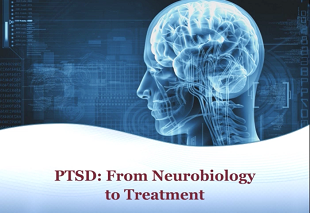PTSD: National Center for PTSD
PTSD: From Neurobiology to Treatment
Continuing Education
This section brings together free in-depth Continuing Education resources for the Professional community concerned with trauma.
PTSD: From Neurobiology to Treatment
- Date Created: 03/21/2019
- Time to Complete: 1 hour
- Credits: APA, ASWB, NBCC, Other Orgs
- Skill Level: Advanced
- Course Series: PTSD 101
 Author(s):
Author(s):
Description
The effective treatment of PTSD is limited by the small number of validated pharmacotherapy options. Deeper understanding of the neurobiology of PTSD is informing the development of new medication strategies.
This course highlights advances from the 25 years of research within the Clinical Neuroscience Division of the National Center for PTSD. The course describes the disturbances in brain noradrenaline signaling and alterations in serotonin to explain links to the effectiveness of antidepressants used for PTSD. The role of glutamate systems in brain neuroplasticity is explained to introduce the potential of new medication development.
Finally, the course describes the rapid-acting antidepressant effects of the NMDA glutamate receptor antagonist, ketamine, and its application to PTSD treatment.
Goals and Objectives
- Review evidence that new medication treatments will emerge from a deeper understanding of the neurobiology of PTSD.
- Describe alterations in norepinephrine and serotonin signaling in PTSD and link these abnormalities to the effectiveness of antidepressants.
- Describe the path that let to the discovery of rapid-acting antidepressant effects of the NMDA glutamate receptor antagonist, ketamine.
- Describe new types of antidepressants that may emerge out of the post-mortem brain analyses of PTSD.


























